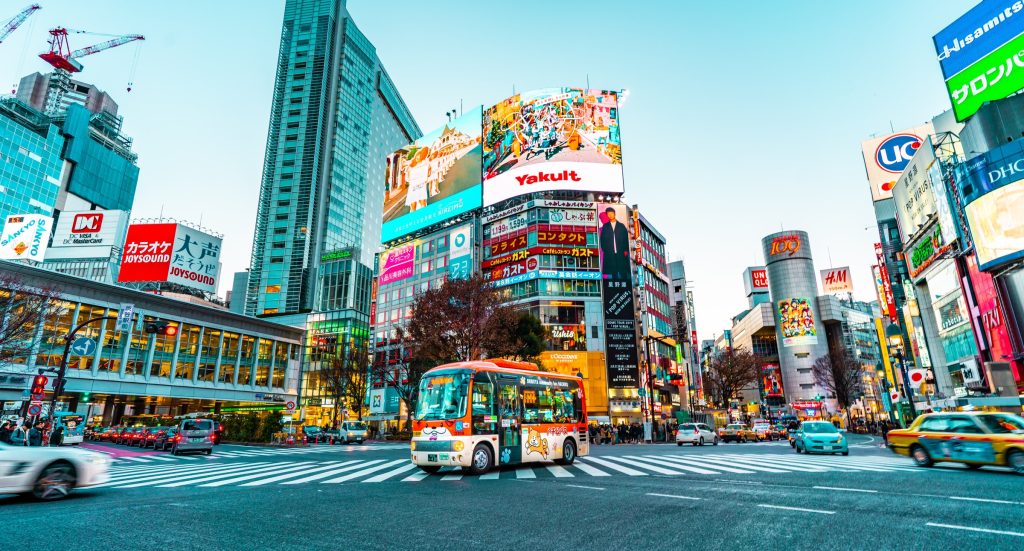Trivia: What is the largest city in the world?
Answer: Tokyo


Tokyo is the world’s most populous city, with an official 2017 population estimate of 37,245,000. Estimates in 2019 put it at over 38 million. It’s also the largest city in the world with about 2,000 km² of land area. That makes it 2x larger than New York City. The next most prominent city in the world is Mexico City, with just over 8 million people.
Tokyo is located in the Kantō region on the southeastern side of Japan’s main island Honshu. It became the imperial capital after Emperor Meiji moved his seat to Kyoto in 1868. Since then, Tokyo has grown to become an economic and cultural hub of East Asia with a population greater than 47 million people in the greater metropolitan area (including Yokohama, Kawasaki, Saitama, Chiba, and others).
The Tokyo Metropolis was formed in 1943 from the merger of the former Tokyo Prefecture (the area which contains modern-day Tokyo) and the city of Tokyo (which contained the part of Tokyo within today’s 23 special wards). At that time, there were about 13 million people in the greater Tokyo area. Today, there are over 38 million living here.
Tokyo has been hit by powerful earthquakes repeatedly throughout its history. The most recent was a magnitude 7.9 earthquake on 11 March 2011 resulting in an enormous tsunami that caused severe damage to coastal parts of eastern Japan and caused a nuclear power plant accident at the Fukushima Daiichi Nuclear Power Plant.
Tokyo is a major international finance center, houses the headquarters of several of the world’s largest investment banks and insurance companies, and serves as a hub for Japan’s transportation, publishing, and broadcasting industries. The city is home to various television networks such as Fuji TV, Tokyo MX, TV Tokyo, TV Asahi, Nippon Television, NHK, and the Tokyo Broadcasting System.
The climate in Tokyo is defined as a humid subtropical climate with hot, humid summers and generally cool winters with cold spells. The area of Tokyo has a humid subtropical climate with warm to hot temperatures throughout the year.
Tokyo gets less rainfall than other parts of Japan outside Shikoku and Kyushu, while dry days are not uncommon in winter. Snowfall is sporadic but does occur almost annually.


